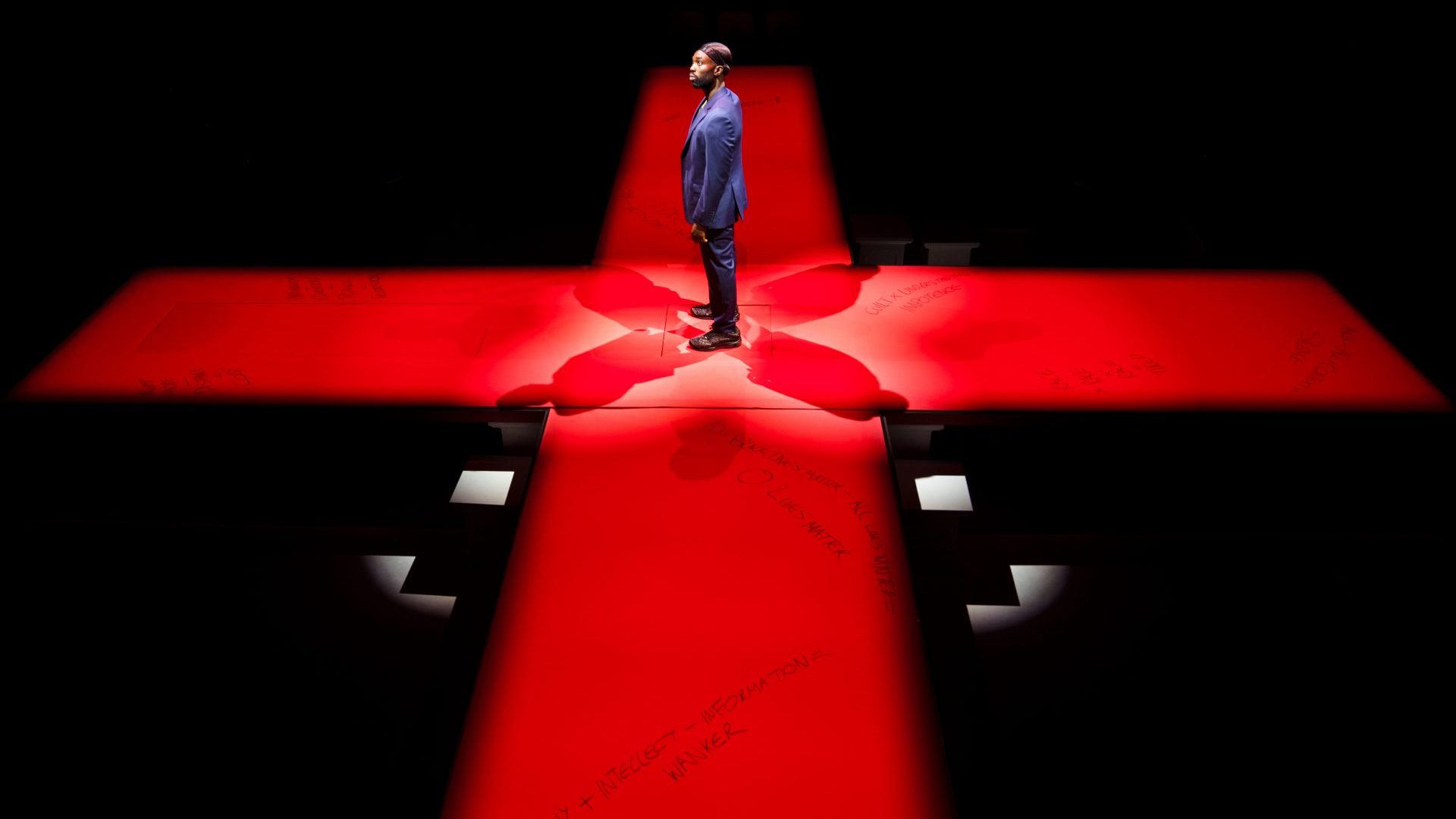A coffin draped in the Union Jack features in the first two Death of England plays now being staged at Soho Place theatre in London. If the symbolism of that, along with the title of this trilogy of works by Clint Dyer and Roy Williams, is provocative, then it’s plainly meant to be. This is unapologetic, cutting-edge theatre that doesn’t give a damn about who it offends.
What’s clear about the first two pieces – one featuring a white man played by Thomas Coombes, coming to terms with the death of his racist father; and the other, Paapa Essiedu as a black man unfairly arrested on the night his partner gives birth – is that the writing has about it the quality of all truly great writing, and that is to say it is honest.
Laurence Oliver used to say theatre should be about putting up a mirror to society, but it has largely failed in this respect over the past decade. There has been nothing like a Look Back in Anger or the sort of state-of-the nation plays Sir David Hare used to write for the National.
The one mainstream attempt at a drama about Brexit was The Uncivil War, but James Graham decided with that – as he did with Ink, his play about Rupert Murdoch – that it was going to be necessary to put “both sides of the story.”
Our major news organisations have largely given in to this doctrine of false equivalence, but drama never should. Dyer and Williams are angry young men in the way that Graham and so many other contemporary playwrights don’t even pretend to be.
This pair get that there is right and there is wrong. As men of colour, they are genuinely outsiders, looking with burning rage at what has happened to the country we all share, but also a shrewd, and startlingly mature, insight into the human condition.
It turns out that the racist dad Coombes is grieving recognised the emptiness of his life and wanted, above all things, for his son to make something of himself rather than allow it to be consumed with the hatred that ruined his. The black character Essiedu plays voted for Brexit and Boris Johnson (twice) but he understood only too well that, like drugs or alcohol, it was a quick fix that could only ever make the problems we had worse still.
Our country was, of course, in the throes of a collective nervous breakdown for some time before Brexit, but it was that to which we half-heartedly resorted to assuage the pain associated with a lack of identity, often individually as well as nationally, a sense of superiority that seemed to stem from nowhere and an uncomfortable awareness that the world around us is moving too fast for us to be able to comprehend or handle.
Essideu’s character has about him a weary sense of acceptance. He knows when he’s stopped by the police how the odds are stacked against him.
Cocky and jokey in his first scenes, a maturity slowly becomes apparent and he eventually explains the real reason he voted Leave was because he wanted the indigenous white population to come to terms with who and what they had become once all the support systems were cut away and they had to get by on their own. As with alcoholism, he got that it was going to be necessary for England to hit rock bottom before it could start any meaningful recovery.
Coombes’s character, meanwhile, recognises how offensive his father is as he sits screaming about “monkeys” as he watches a football match, but can’t be bothered to challenge him. When his dad eventually has a heart attack, screaming abuse at a black player on the television, he is merely struck by the irony of how his father’s racism eventually proved terminal.
Essiedu and Coombes traverse the stage on their own in both the pieces that Dyer also directs and theirs are performances of mesmerising intensity. A few minutes into Coombes’ performance, I found myself thinking this man was absolutely horrific and embodied just about everything I detest in so many of my fellow countrymen – but, after a while, I found myself being inexorably drawn into his world, and, eventually, understanding him.
Understanding each other, in particular those we may despise, is the only way we are even going to be able to heal as a country. The scoop Dyer and Williams have managed to land – to use the phrase of the late Observer editor David Astor – is “the scoop of interpretation.”
We might rage as we sit watching the television about what we see happening in cities such as Southport, how unscrupulous politicians such as Nigel Farage have managed to make such headway in our country, and how the lies our media too often peddle get traction, but too seldom have we understood why and too often have we been complacent.
It’s great these plays have been written, and it’s great, too, that two strong women in Nica Burns, the boss of Soho Place, and Jenny Seagrove, who’s taken over the reins at Bill Kenwright Limited, have had the courage to give them a proper run after their first staging at the National was swiftly halted by the pandemic. The third piece in the Death of England trilogy – starring Erin Doherty and Sharon Duncan-Brewster – opens on August 22, when it will be possible to see all three plays in repertory up until September 28. At the end of the first two, I felt that rare thing – a sense of community with a large number of people – but also a shared sense that we have to try to make this country of ours a better place.












